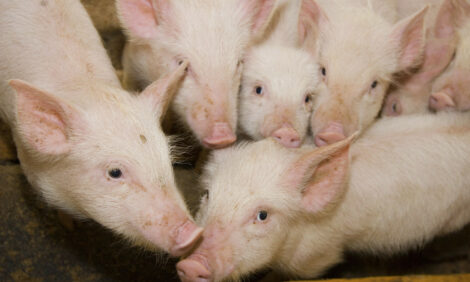



German parliament adopts new animal husbandry labelling regulations
The law initially regulates fattening in pigsThe German Bundestag has passed the law for state, mandatory animal husbandry labelling presented by the Federal Minister of Food and Agriculture, Cem Özdemir. Amendments to the building code were also decided to facilitate stable conversions, according to a government-issued press release.
The husbandry label includes five forms of husbandry: Stall, Stall+Platz, Fresh air stable, Exit/pasture and Organic. The law initially regulates fattening in pigs and is to be rapidly extended to other animal species, other areas in the recycling chain, such as gastronomy and the life cycle of animals.
In addition, the decision of the law on stable conversion for animal-keeping farms will make it easier in the future to adapt their stables to the more animal-friendly forms of husbandry. The law provides for a privilege under construction law for companies that want to convert their stable facilities in order to convert their existing animal husbandry to the forms of fresh air stable, run-out/pasture or organic. Pet owners do not have to reduce their stocks. It is also possible that a replacement new building can take place in a different place than the old building. This means that animal husbandry remains possible even during the construction measures for a replacement stable.
Both laws are now expected to be passed on the 7th. July in the Federal Council, however, are not subject to approval there.
"Today is a good day for the animal husbandry in our country and for consumers," said Federal Minister Cem Özdemir. "With the mandatory animal husbandry labelling and the facilitation for the stable conversion, today we are tackling two very central building blocks that are necessary for future-proof animal husbandry. This finally initiates the restructuring of animal husbandry after years of crisis and many attempts at markings. This is a great and joint success of the coalition for our agriculture. Keeping fewer animals better and a good economic perspective for our farmers, that's what we're all about."
"Good meat should also come from Germany in the future, he continued. "With the mandatory animal husbandry labelling, consumers will be able to see how the animal was kept on the shelf or at the meat counter in the future. We now start with pork, will gradually accept more animal species and also other distribution channels, so that you as a consumer can then also see in the restaurant how your schnitzel was kept. In this way, we also strengthen animal welfare. With changes in construction law, we make it easier for animal-keeping companies to convert their farms in an animal-friendly manner."









